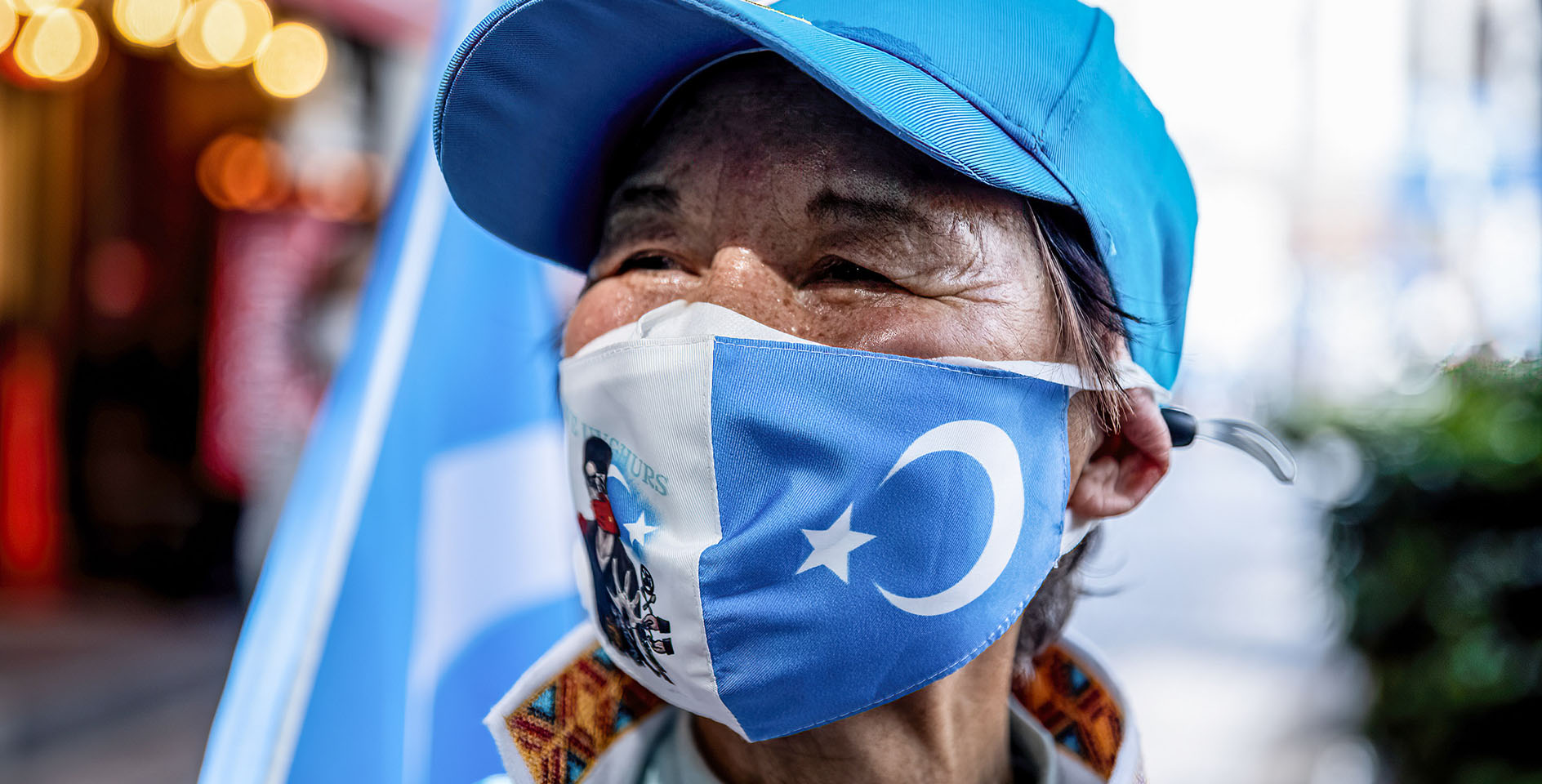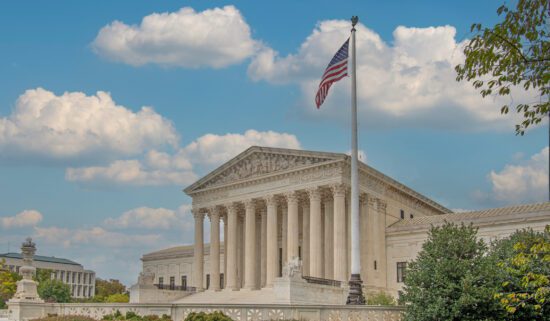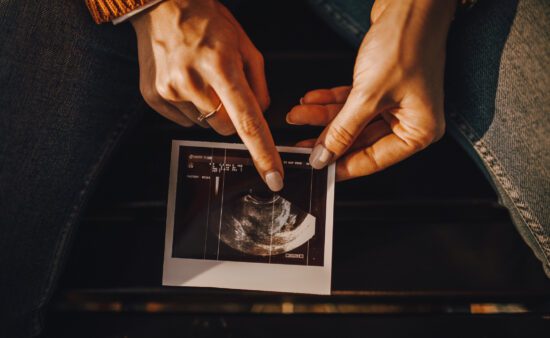Religious liberty is a Baptist distinctive, despite recent controversies regarding its legitimacy. We believe religious liberty is essential for all people because true faith cannot be coerced, nor should it be outlawed. When freedom to live according to one’s deeply held beliefs is not recognized by the state, human flourishing is suppressed. As ambassadors of Christ, then, we should not seek not to coerce or strongarm consciences, or permit the state to do so, but to advocate for their freedom and, by God’s grace, make our appeal to those free consciences to be reconciled to their Lord.
The ERLC will always prioritize the protection of religious liberty, as was strongly communicated in the 2022 Public Policy Agenda. This annual asset is an essential part of our advocacy efforts in our nation’s capital. This publicly available, 16-page document charts a path forward for our D.C. team each year, and this year’s response was far more than what we were expecting. In addition to hearing from policy makers and advocacy partners, multiple pastors and many fellow Southern Baptists reached out to affirm the ways we are engaging our nation’s elected leaders. Recounted below are some of the encouraging developments regarding religious liberty over the last year.
Advocacy for the Uyghurs
A significant legislative victory occurred for our team in December 2021. The Uyghur Forced Labor Prevention Act was signed into law after some furious back-and-forth negotiating to rescue the package on Capitol Hill. This bill was the focus of a private, in-person meeting with the State Department on Nov. 30, 2021, in Washington, D.C., where we communicated the importance of this bill—and the need to continue confronting China—to the SBC after the passage of the 2021 resolution at the annual meeting.
The timing of the passage of the bill was consequential as the 2022 Winter Olympics were held in Beijing, China. While the eyes of the world always turn to the Olympics, these games were being watched even more closely due to China’s repeated human rights violations and the ongoing genocide against the Uyghurs. On Feb. 1, we hosted an online event titled, “Oppression and the Olympics,” which brought together multiple experts to talk about China’s heinous treatment of religious minorities.
Supreme Court religious liberty rulings
In addition, the Supreme Court took up a number of a significant religious liberty cases this term, and in every case, provided rulings that affirmed and undergirded the important of religious liberty in our nation.
On March 24, in a 8-1 decision, the Supreme Court ruled in Ramirez v. Collier that John Ramirez should be allowed to have his Southern Baptist pastor pray aloud and lay hands on him as he is executed. The ERLC filed an amicus brief prior to the ruling, asking the Supreme Court to protect Ramirez’s religious freedom rights. Our brief asserted that the state has failed to meet its burden, under Religious Land Use and Institutionalized Persons Act, of demonstrating that refusing an inmate audible prayers and laying on of hands during his execution serves a compelling interest and does so by the least restrictive means.
The Ramirez case was a significant win for religious liberty. This ruling helps protect the centuries-old practice of providing spiritual counsel and comfort to prisoners. As Brent Leatherwood said at the time of the ruling, “The Supreme Court affirmed that religious freedom does not end at the execution chamber door.”
The Supreme Court unanimously ruled May 2 in Shurtleff v. Boston that the city of Boston violated the First Amendment rights of petitioners Harold Shurtleff and his organization, Camp Constitution, by refusing to allow the group to fly the Christian flag in front of City Hall. The ERLC had joined an amicus brief asking the Supreme Court to rule in favor of Camp Constitution. Our brief argued that the City of Boston violated the Free Exercise Clause and Establishment Clause and wrongly discriminated against the speech of an organization.
This case provided another victory in free speech jurisprudence, affirming the First Amendment rights of all organizations, including religious organizations, and clarifying the understanding of the Establishment Clause, with implications for religious speech at other limited public forums such as schools, city halls, and public libraries.
The ERLC believes our First Amendment rights travel together. A weakening of one is a weakening of all of the foundational rights contained in the First Amendment. The Supreme Court has taken a robust view of these foundational rights, and we are grateful that the justices once again ruled in favor of freedom of speech in the public square.
The 6-3 decision in Carson v. Makin, released by the court on June 21, ruled that Maine’s “nonsectarian” requirement for otherwise generally available tuition assistance payments violates the Free Exercise Clause. The ERLC signed amicus briefs both at the petition for certiorari stage and when the case was before the Supreme Court on the merits. The brief the ERLC joined on the merits argues that Maine’s public education system does not merely exclude religious schools—it discriminates against them.
This case is an important win for religious liberty. Carson v. Makin further enshrines the religious protections articulated in Trinity Lutheran and Espinoza, decisions that determined that states cannot exclude organizations and schools from receiving public benefits simply because they are religious. This decision also closed a loophole the First Circuit opened when upholding Maine’s exclusion of “sectarian” schools from its tuition assistance program.
In an affirmation of religious expression, the Supreme Court ruled 6-3 in Kennedy v. Bremerton on June 27 that “the Free Exercise and Free Speech Clauses of the First Amendment protect an individual engaging in a personal religious observance from government reprisal.” The ERLC was involved with briefs at the petition for certiorari stage and before the Supreme Court on the merits.
Joseph Kennedy, a high school football coach in Washington state, lost his job after refusing to stop offering personal prayers at midfield after games. Occasionally, students would join him and also pray. In the wake of public controversy, Coach Kennedy was fired. The “District Court found that the ‘sole reason’ for the District’s decision to suspend Mr. Kennedy was its perceived ‘risk of constitutional liability’ under the Establishment Clause for his ‘religious conduct’ after three games.”
The case actually came before the Supreme Court once prior. In 2018, ERLC joined eight other groups in a brief that called for Supreme Court review and repudiation of the Ninth Circuit in the case, but the justices declined to grant the cert request at the time. The case returned to federal court and successfully worked its way back through the judicial system.
The Supreme Court found that Kennedy’s private prayers after football games were “private speech, not government speech,” and teachers and students need not “shed their constitutional rights to freedom of speech or expression at the schoolhouse gate.”
Leatherwood said, “As any Christian knows, our faith is deeply personal and rightly shapes every aspect of our lives. We live out our faith in any number of ways, both privately and publicly. Today’s case centered on the latter and the Supreme Court rightly determined that an individual employed by a school does not forfeit his or her constitutional right to free expression simply by entering ‘the schoolhouse gate’ or, as it were in this case, the field of play.”
This case is another victory in a long line of jurisprudence that further expands Americans’ robust rights of religious expression. Across our convention of churches, faithful Southern Baptists can be found working in the public education sector. As Christians, Scripture calls us to do “all in the name of the Lord Jesus, giving thanks to God the Father through him” (Col. 3:17). This decision bolsters believers’ ability to do this in the public square without fear of repercussions.
As we look to a new year, the ERLC will to continue to advocate for the protection of our first freedom. Ultimately, our desire is that this freedom would lead to spiritual freedom in Christ. Jordan Wootten summed it up well:
Religious liberty is essential because true faith cannot be coerced, nor should it be outlawed. Where soul freedom is not recognized by the state, the state is violating those made in the image of God and the freedom of its citizens. As ambassadors of Christ, then, we seek not to coerce or strongarm consciences, or permit the state to do so, but to advocate for their freedom and, by God’s grace, make our appeal to those free consciences to be reconciled to their Lord.
As we look to a new year, the ERLC will continue to advocate.
*This article is an excerpt from our 2022 Annual Report. Download and read the full report here.









